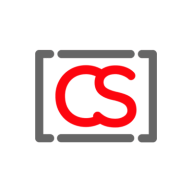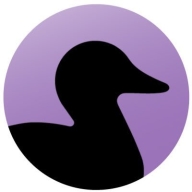

Find out what your peers are saying about SonarSource Sàrl, Checkmarx, Veracode and others in Application Security Tools.
| Product | Market Share (%) |
|---|---|
| CodeSonar | 1.2% |
| SonarQube | 16.4% |
| Checkmarx One | 9.9% |
| Other | 72.5% |
| Product | Market Share (%) |
|---|---|
| Coverity Static | 3.8% |
| SonarQube | 17.7% |
| Checkmarx One | 10.4% |
| Other | 68.1% |

| Company Size | Count |
|---|---|
| Small Business | 5 |
| Midsize Enterprise | 1 |
| Large Enterprise | 2 |
| Company Size | Count |
|---|---|
| Small Business | 8 |
| Midsize Enterprise | 6 |
| Large Enterprise | 31 |
GrammaTech enables organizations to develop software applications more efficiently, on-budget, and on-schedule by helping to eliminate harmful defects that can cause system failures, enable data breaches, and ultimately increase corporate liabilities in today’s connected world. GrammaTech is the developer of CodeSonar, the most powerful source and binary code analysis solution available today. Extraordinarily precise, CodeSonar finds, on average, 2 times more serious defects in software than other static analysis solutions. Designed for organizations with zero tolerance for defects and vulnerabilities in their applications, CodeSonar provides static analysis for applications where reliability and security are paramount - widely used by software developers in avionics, medical, automotive, industrial control, and other mission-critical applications. Some of GrammaTech's customers include Toyota, GE, Hyundai, Kawasaki, LG, Lockheed Martin, NASA, Northrop Grumman, Panasonic, and Samsung.
Coverity gives you the speed, ease of use, accuracy, industry standards compliance, and scalability that you need to develop high-quality, secure applications. Coverity identifies critical software quality defects and security vulnerabilities in code as it’s written, early in the development process, when it’s least costly and easiest to fix. With the Code Sight integrated development environment (IDE) plugin, developers get accurate analysis in seconds in their IDE as they code. Precise actionable remediation advice and context-specific eLearning help your developers understand how to fix their prioritized issues quickly, without having to become security experts.
Coverity seamlessly integrates automated security testing into your CI/CD pipelines and supports your existing development tools and workflows. Choose where and how to do your development: on-premises or in the cloud with the Polaris Software Integrity Platform (SaaS), a highly scalable, cloud-based application security platform. Coverity supports more than 20 languages and 200 frameworks and templates.
We monitor all Application Security Tools reviews to prevent fraudulent reviews and keep review quality high. We do not post reviews by company employees or direct competitors. We validate each review for authenticity via cross-reference with LinkedIn, and personal follow-up with the reviewer when necessary.